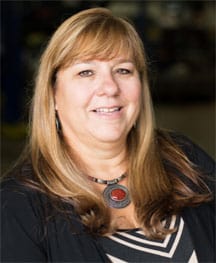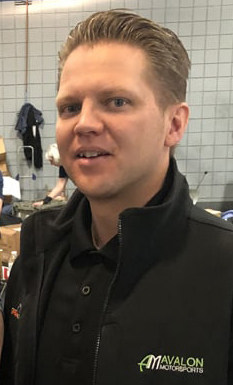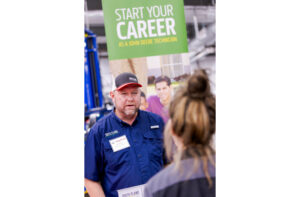Repairers need to contact their lenders, dial back fixed operating costs, keep staff informed and reassure customers
Denver—When Bryan Gossel, owner of BG Automotive in Fort Collins, spoke with his banker three weeks ago he was told that many businesses, not just repair shops, were suffering because of the coronavirus backlash.
“He said that even in good times there are many businesses that are two weeks away from closing their doors. If shops haven’t been paying attention to their finances before, they’re forced to now.”

Gossel was a panelist on Carm Capriotto’s “Remarkable Results Radio” for a discussion, “Are You a Two Week Business: Surviving During the Covid-19 Outbreak,” with fellow ASA Colorado members Brad Pellman of Pellman’s Automotive Service in Boulder, Phil Carpenter of Avalon Motorsports and Urban Autocare in Denver, Judi Haglin of Haglin Automotive in Boulder, and Bob Redding of ASA National.
There is help on the way, Redding noted, as the $2.2 trillion stimulus package that was passed last week is designed to keep people going to businesses, employed and businesses open.
“It’s intent is to get and keep money on the street as quickly as possible,” he said. “Timelines are critically important. The assistance is opportunity for shops to take advantage of if they need it.”
He encouraged shops to contact their lenders and bankers in order to participate in the Paycheck Protection Program that is a component of the relief package. “It has principle forgiveness provisions that include rent and/or mortgage interest, payroll, benefits and utilities for those who keep workers on payroll for eight weeks. Even if you’re declined, there’s an emergency cash provision up to $10,000 that features some forgiveness. There are a lot of incentives to keep shops open and their staffs working.”

Pellman said shop owners are concerned as the present situation is unlike anything that had been previously experienced. “It was totally unexpected and I don’t think there’s anyone who could say they were prepared.”
Dial down fixed operating costs
Haglin advised that shops should re-evaluate everything they’re doing in their businesses.
“Shops should target payments that are fixed costs that could possibly be deferred. Cash is king, and the more cash you can keep and save is important, because we don’t know how long this is going to last.”
For example, if it becomes necessary to furlough or lay off employees, there are additional considerations, such as placing uniform ordering on hold, as well as the number of rags. As there is less foot traffic, carpet cleaning and related costs could also be dialed back.
“Take a hard look at what you can pull back and save,” she said, “then estimate how many labor hours you’ll need to meet the new weekly fixed cost amounts. Now is the time to be creative when looking at your finances.”

Keep employees informed
Haglin reported that it was necessary for her shop to furlough some employees. “We consider everyone like family, but there becomes a reality that tough decisions have to be made because it’s a business.”
In the event employees are furloughed, she said it’s important to keep in touch with them two or three times a week.
“Keep in communication and if you have a lunch meeting, be sure to include them. Keep them updated on your loan process and what steps you’re taking to send them the message that you’re doing everything you can to get them back. When someone has to be let go, they feel very isolated and they ask themselves, ‘Why me?’ They need to know they’re still part of the ‘family.’”
Pellman said that weekly meetings to inform staff of what the shop is doing to keep business going is also important. “This is when you find out who is really on your team and who’s stepping up with solutions. Our staff is important and we have to hold on to them.”
Reassure shop customers
When it comes to assuring customers that their serviced vehicles are being properly sanitized and cleaned, Pellman’s shop waits until a customer arrives for pick up.

“We wipe down the car and all the surface areas we’re touching in front of the customer. We could do it as soon as the car is serviced, but we’re waiting so they can see us do it, which they really appreciate and they thank us for that moment.”
Phil Carpenter added that his shop installed a hand-sanitizer dispenser at its entrance door for staff to regularly use and for customers to see.
“Shops are an essential business and many of us are servicing doctors, nurses, gas stations and trucks that deliver food to stores, as well as the people who work in them,” Gossel said. “We’re all life-sustaining businesses and there are bigger things than just money.”











Comments are closed.